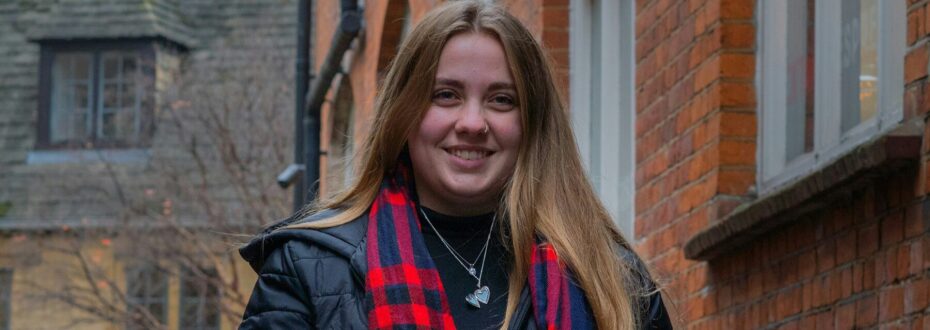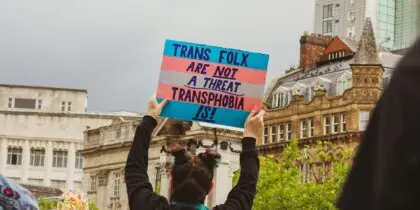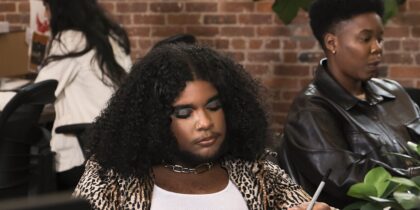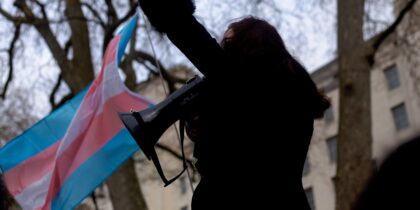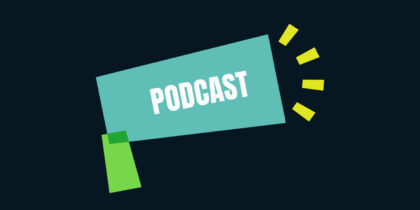Being asexual, often referred to as ‘ace’, means a person experiences little to no sexual attraction.
Like all sexualities, it’s complex and maybe best visualised on a spectrum that includes emotional, romantic and spiritual attraction. For example, while an asexual person won’t experience sexual attraction, they might experience levels of romantic attraction. Equally, an asexual person might experience no form of attraction at all to other people.
Wherever an asexual person identifies on the spectrum, this does not inhibit the quality of their relationships or their meaningfulness. Most importantly, and something that took me the longest time to accept, is that being asexual is not a lack of anything. It is not a lack of libido, or a phase; it is a sexuality of its own standing, and it is real.
Queer identities
As young women, we are persistently and relentlessly told that our sexuality is our value. We are oversexualised in the media, our bodies commented on like commodities, and we are taught that the language of sex is the only way we can make ourselves heard. My first boyfriend at 14, who was only 16 himself, knew that if we didn’t have sex he was going to ‘break up with me’; in his eyes, that was what I was for.
Sex, we are told, is a most base human desire. It’s the passion and fire in our blood and the thing that makes us human. So what is a person if they don’t experience that? Where is my value, as a woman, if I am asexual?
The denial that a person might not experience this ‘basic human nature’ has been with me through the formative years of adolescence, through asking for the help that I needed in times of vulnerability, and today, during Pride month, when I have to face the question: why won’t you tell people about your sexuality?
I ‘came out’ while in a long-term, cis gendered, heteronormative relationship. I am somehow both accepted and not. Even when speaking with my close friends I was met with inappropriate questions about my sex life, how things worked with my partner, what he thought about it and if he was going to stay with me.
Perhaps the questions came from a good place, but I stopped talking about it shortly after and I chose to remain anonymous for this blog. It’s worth noting that half of ace respondents state that they are not out to any of their colleagues, compared to 18% of the wider LGBTQIA+ population.
June is Pride month
Within the LGBTQIA+ community and throughout this wonderful month, sex is celebrated, and rightly so. To be asexual isn’t a denial of other people’s sexuality. Since I was in school, and first discovering queer relationships, the number of letters in the queer alphabet has more than doubled. Slowly, as I have begun to accept myself as a member of the community, I have come to learn that even within the letters, there is so much more depth and complexity. You are not one thing and therefore not another. I am asexual, and still, I am a woman, human, fiancée and much more.
Finding peace or belonging in a sense of recognised identity and pride has been so important to me, and this feeling matters. But, ultimately, the number of letters in the queer alphabet should not, and I hope we are striving towards a time when we do not feel a need to explain ourselves with letters or labels. We have made so much progress, and expanded our knowledge base of queer identities and the multiple ways that we can experience relationships, but more letters does not equal more acceptance if we’re still expected to stay in that box.
To embrace the values of pride we still have a long way to go. We must still find ways to accept the fluidity of sexuality and gender, we must not police the boundaries of these letters and we must continue to teach people, this month and always, that there are more ways than letters to be human.
What does this mean for mental health and wellbeing?
For most of my teenage years I was in an abusive relationship. Doctors told me that the pain I experienced during sex, the disassociation and the mental distress, was a result of trauma; but the availability of psychosexual therapy was near enough non-existent, they couldn’t even direct me where to look. Despite the sexual nature of some of these issues, no one asked me about my sexuality.
If I had known about the existence of asexual people earlier, would it have prevented re-traumatisation through these experiences?
The LGBTQIA+ community is not predisposed to mental ill health, yet members of the community are far more likely to self-harm, and to be diagnosed with common mental health problems, such as anxiety and depression. For instance, 2 in 5 ace people experience mental health difficulties.
For me, moving from a space of allyship to representation has been challenging in ways that I could not have expected. As an ally, I was confident, self-assured and – when needed – ferocious in the defense of LGBTQIA+ rights; now, as a member of the community, I feel fear, responsibility and, at times, like a fraud. I have chosen to be anonymous for this blog because there is still a very real risk to my mental health as a member of the queer community; a risk posed by people who will not accept me, will not believe my experience and may try to undo the work I have done on the journey to accepting myself. I am fortunate that I am unlikely to receive abuse based on how I appear, but I share a fear for people, especially trans people, who do not have this option. It is not a privilege to hide who you are in fear of judgement.
I contemplated whether anonymising myself was an antithesis to the essence of Pride, but my name does not add any validity to my story. So please imagine me as your friend and imagine for a moment that your friend is carrying this weight. How will you help them?
Name and address supplied
To learn more about asexuality, check out the Sounds Fake But Okay podcast.

